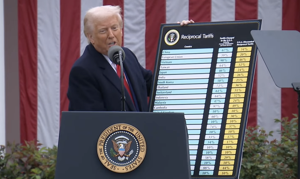The American middle class has been hollowed out for decades. Factors such as the decline of major industries like manufacturing, alongside stagnating wages and the rising cost of living, have reduced the ranks of the American middle class since the 1970s and exacerbated income inequality.
Not only impacting millions of American families, the decline of the middle class, as the economic backbone of the United States, is also a cause for concern among policy makers. A strong middle class is considered a pillar of economic stability and a key driver of economic growth. Middle-class households provide the labor market with workers and are themselves a steady market for goods and services. Middle-class households are also an engine of entrepreneurship and innovation, and their tax dollars help sustain investment in quality public services.
Despite the challenges of the middle class nationwide, there are still cities in the United States where middle-class incomes remain relatively high. Due to both economic and demographic circumstances, the middle class in these places have bucked many of the longer-term trends that are all too evident in other parts of the country.
Of the three metro areas in Mississippi, Gulfport-Biloxi ranks as having the wealthiest middle class. The middle 20% of households by earnings in the area make between $42,951 and $69,812 annually, which is still below what the middle 20% of earners across the state as a whole earn, between $52,295 and $82,996.
Unlike in decades past, where someone could get a well-paying job with just a high school diploma, today, the vast majority of high-paying positions require a college education. In Gulfport-Biloxi, 26.8% of adults have a bachelor’s degree or higher, compared to 24.8% of adults across all of Mississippi.
All data in this story is from the U.S. Census Bureau’s 2021 American Community Survey. For each of the 384 U.S. metro areas with available data, we reviewed the income range of the middle 20% earners at the household level. In each state, the metro area with the highest floor for the middle quintile of earners ranks as having the wealthiest middle class.
| State | Metro area with the wealtiest middle class | Lower income limit of middle class households in metro area ($) | Upper income limit of middle class households in metro area ($) | Lower income limit of middle class households in state ($) | Upper income limit of middle class households in state ($) | Total metro areas in state |
|---|---|---|---|---|---|---|
| Alabama | Huntsville | 59,275 | 95,386 | 51,964 | 81,812 | 12 |
| Alaska | Anchorage | 69,309 | 104,406 | 56,320 | 89,984 | 2 |
| Arizona | Phoenix | 60,980 | 92,683 | 69,215 | 113,568 | 7 |
| Arkansas | Fayetteville | 58,347 | 85,134 | 51,469 | 81,356 | 6 |
| California | San Jose | 107,949 | 176,806 | 63,308 | 101,711 | 26 |
| Colorado | Denver | 72,213 | 111,148 | 71,175 | 111,220 | 7 |
| Connecticut | Bridgeport | 75,514 | 127,824 | 46,623 | 73,356 | 4 |
| Delaware | Dover | 52,778 | 79,512 | 56,948 | 94,304 | 1 |
| Florida | Naples | 61,008 | 93,239 | 50,200 | 78,317 | 22 |
| Georgia | Atlanta | 61,941 | 95,704 | 50,200 | 78,317 | 14 |
| Hawaii | Urban Honolulu | 73,035 | 110,664 | 69,215 | 113,568 | 2 |
| Idaho | Boise City | 60,209 | 88,755 | 66,612 | 105,995 | 6 |
| Illinois | Chicago | 61,683 | 97,911 | 52,379 | 83,764 | 10 |
| Indiana | Columbus | 60,201 | 88,113 | 51,980 | 80,331 | 12 |
| Iowa | Des Moines | 60,185 | 91,157 | 65,032 | 96,596 | 8 |
| Kansas | Wichita | 49,763 | 73,976 | 49,218 | 77,486 | 4 |
| Kentucky | Lexington | 50,700 | 78,104 | 50,200 | 78,317 | 5 |
| Louisiana | Houma | 45,606 | 75,633 | 48,732 | 77,231 | 9 |
| Maine | Portland | 62,119 | 94,293 | 53,713 | 85,848 | 3 |
| Maryland | California | 89,350 | 126,751 | 39,906 | 65,189 | 5 |
| Massachusetts | Boston | 77,961 | 125,760 | 66,612 | 105,995 | 5 |
| Michigan | Ann Arbor | 60,480 | 97,679 | 48,732 | 77,231 | 14 |
| Minnesota | Minneapolis | 69,840 | 106,711 | 66,612 | 105,995 | 5 |
| Mississippi | Gulfport | 42,951 | 69,812 | 52,295 | 82,996 | 3 |
| Missouri | Kansas City | 59,319 | 90,657 | 49,218 | 77,486 | 8 |
| Montana | Billings | 56,458 | 83,949 | 50,618 | 77,150 | 3 |
| Nebraska | Omaha | 58,797 | 91,491 | 65,335 | 104,919 | 3 |
| Nevada | Reno | 61,956 | 95,089 | 52,379 | 83,764 | 3 |
| New Hampshire | Manchester | 73,687 | 108,394 | 50,618 | 77,150 | 1 |
| New Jersey | Trenton | 68,864 | 108,749 | 56,295 | 88,426 | 4 |
| New Mexico | Santa Fe | 53,897 | 84,031 | 69,921 | 112,054 | 4 |
| New York | Poughkeepsie | 69,276 | 109,645 | 49,218 | 77,486 | 13 |
| North Carolina | Raleigh | 67,045 | 104,142 | 44,235 | 69,505 | 15 |
| North Dakota | Bismarck | 54,197 | 85,621 | 51,156 | 79,317 | 3 |
| Ohio | Columbus | 57,296 | 89,383 | 50,618 | 77,150 | 11 |
| Oklahoma | Enid | 50,742 | 72,058 | 51,964 | 81,812 | 4 |
| Oregon | Portland | 67,202 | 102,601 | 66,612 | 105,995 | 8 |
| Pennsylvania | Lancaster | 62,449 | 89,527 | 66,612 | 105,995 | 18 |
| Rhode Island | Providence | 57,443 | 93,753 | 50,200 | 78,317 | 1 |
| South Carolina | Charleston | 58,474 | 89,582 | 54,292 | 81,556 | 8 |
| South Dakota | Sioux Falls | 62,200 | 89,212 | 52,379 | 83,764 | 2 |
| Tennessee | Nashville | 58,925 | 90,095 | 66,612 | 105,995 | 10 |
| Texas | Austin | 68,737 | 105,556 | 51,964 | 81,812 | 25 |
| Utah | Provo | 71,963 | 104,267 | 69,215 | 113,568 | 5 |
| Vermont | Burlington | 65,505 | 98,761 | 50,618 | 77,150 | 1 |
| Virginia | Charlottesville | 63,159 | 97,426 | 54,429 | 84,652 | 9 |
| Washington | Seattle | 80,316 | 124,685 | 62,433 | 95,630 | 11 |
| West Virginia | Morgantown | 43,940 | 71,959 | 52,379 | 83,764 | 7 |
| Wisconsin | Appleton | 61,672 | 90,064 | 54,429 | 84,652 | 12 |
| Wyoming | Casper | 51,001 | 75,905 | 52,295 | 82,996 | 2 |




















































